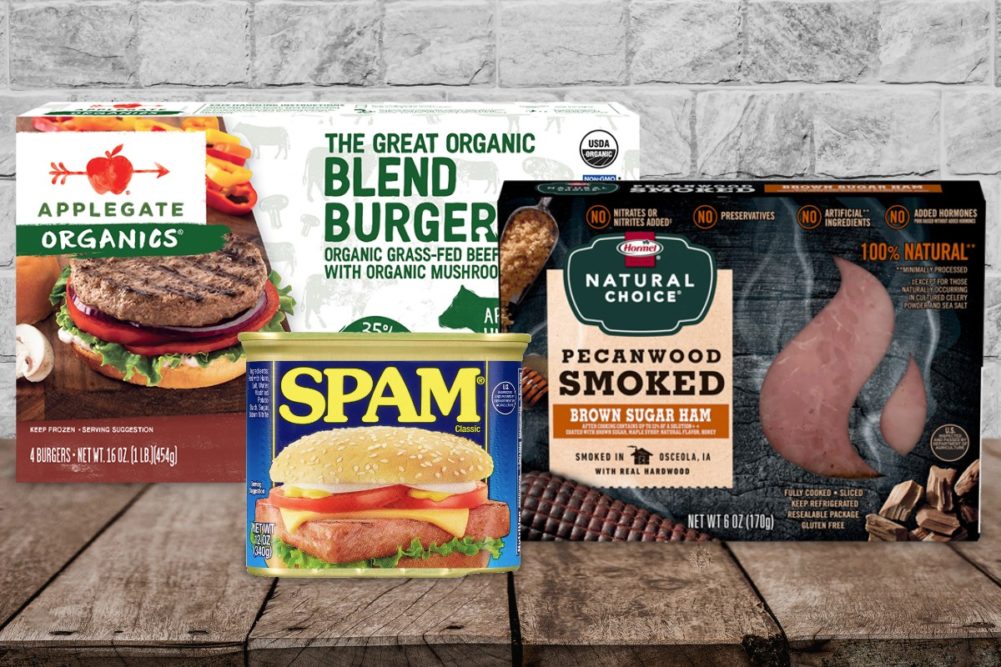AUSTIN, MINN. – Hormel Foods Corp. has been hampered by supply chain constraints for much of the pandemic. Completed initiatives have unlocked capacity and given the company the opportunity to fully meet demand.
“We continue to strike a balance between the consumer demand we are seeing and our supply chain's ability to meet that demand,” said James P. Snee, chairman, president and chief executive officer, during a Feb. 18 conference call to discuss quarterly results. “We increased production levels this quarter through a combination of improving efficiencies, bringing on new capacity and further leveraging our strategic supply chain partners. We expect this steady improvement to continue throughout the year. We have been successful in a number of critical categories, and we will continue to make progress across the portfolio.”
The added capacity pushed first-quarter sales higher but pressured the bottom line. Net income for the quarter ended Jan. 24 totaled $222 million, equal to 41¢ per share on the common stock, down 9% from $243 million, or 45¢ per share, in the same period a year ago.
Quarterly sales rose 3% to $2.5 billion.
Refrigerated Foods, Hormel’s largest business unit, saw sales rise 1% to $1.4 billion, but operating profit decline 16% to $141 million. Strong retail and deli sales growth overcame sales declines in foodservice, according to the company. But the lower foodservice sales combined with a decrease in commodity profits and incremental supply chain costs related to COVID-19 pressured segment operating profit.
Grocery Products sales rose 7% during the quarter to $578 million and operating profit surged 35% to $92 million.
“Grocery Products delivered very impressive results this quarter,” Mr. Snee said. “We saw top-line strength across many of our brands, including Spam, Skippy, Hormel Compleats and Herdez, which led to volume increases of 4% and sales increases of 7%.
“We implemented a price increase for our Skippy business this quarter, once again demonstrating our ability to price in our categories. We are also encouraged with the performance of our recent innovative new items, including Skippy Squeeze, Skippy No Sugar and Skippy with added protein spreads.”
Jennie-O Turkey Store sales rose 1% to $333 million and operating fell 30% to $27 million.
“Lower foodservice sales increased supply chain cost related to the COVID-19 pandemic, and higher freight expenses were key drivers to the lower profitability,” Mr. Snee said. “Grain prices increased significantly during the quarter but only had a modest effect on earnings. We expect the primary impact of higher grain prices to affect the coming quarters.”
Mr. Snee added that Hormel has raised prices across the Jennie-O Turkey Store product line and management expects them to be effective late in the second quarter.
James N. Sheehan, chief financial officer, said the price of cornmeal rose 40% during the quarter while soybean meal rose about 15%. To offset the price increases, he said the company is changing its turkey feeding formula to being more soybean meal-based and moving away from corn.
International & Other business unit sales rose 13% to $183 million and operating income jumped 61% to $32 million.
“Once again, the strong sales and earnings performance was led by our retail and foodservice business in China,” Mr. Snee said. “Spam, Skippy and Beef Jerky were all key drivers to growth in China.”
Mr. Snee identified three drivers that will affect Hormel’s long- and short-term outlook — retail dynamics, foodservice recovery and supply chain improvements.
“Our retail, deli and international teams need to maintain their momentum and outperform their respective categories,” he said. “Our brands continue to gain new households, and our repeat rates remain very strong. The depth of repeat, those consumers purchasing our brands multiple times, is incredibly positive with almost all new buyers for our brands making 2-or-more repeat purchases during the first quarter.”
In foodservice, the company is seeking pockets of opportunity as the marketplace recovers.
“During the pandemic, operators have been looking for products to simplify their food preparation, save time and minimize labor, all while preserving the flexibility to add their own unique touch to a menu item,” Mr. Snee said. “Our direct sales force continues to meet their needs with products like Hormel Fire Braised meats, Sadler's authentic smoked barbecue and Hormel Bacon 1.
“The recent trends we are seeing in our foodservice businesses are positive. We have been able to react quickly to increased demand as cities and states have eased dining restrictions, allowing patrons to return to their favorite restaurants. We also anticipate our noncommercial business such as K-12 schools, colleges and universities and health care to recover as the pandemic subsides.”
Added supply chain capacity occurred during the quarter with the completion of two projects, a dry sausage manufacturing facility opening, and a pizza topping plant expansion, Mr. Snee said.
“Both projects were on time and on budget, which is truly amazing considering both projects were constructed primarily during the pandemic,” he said.
For fiscal 2021, the company is guiding that sales will fall between $9.7 billion and $10.3 billion, and earnings per share will be in a range of $1.70 to $1.82. The guidance does not include the estimated impact of the Planters acquisition that was announced Feb. 11, according to the company.






